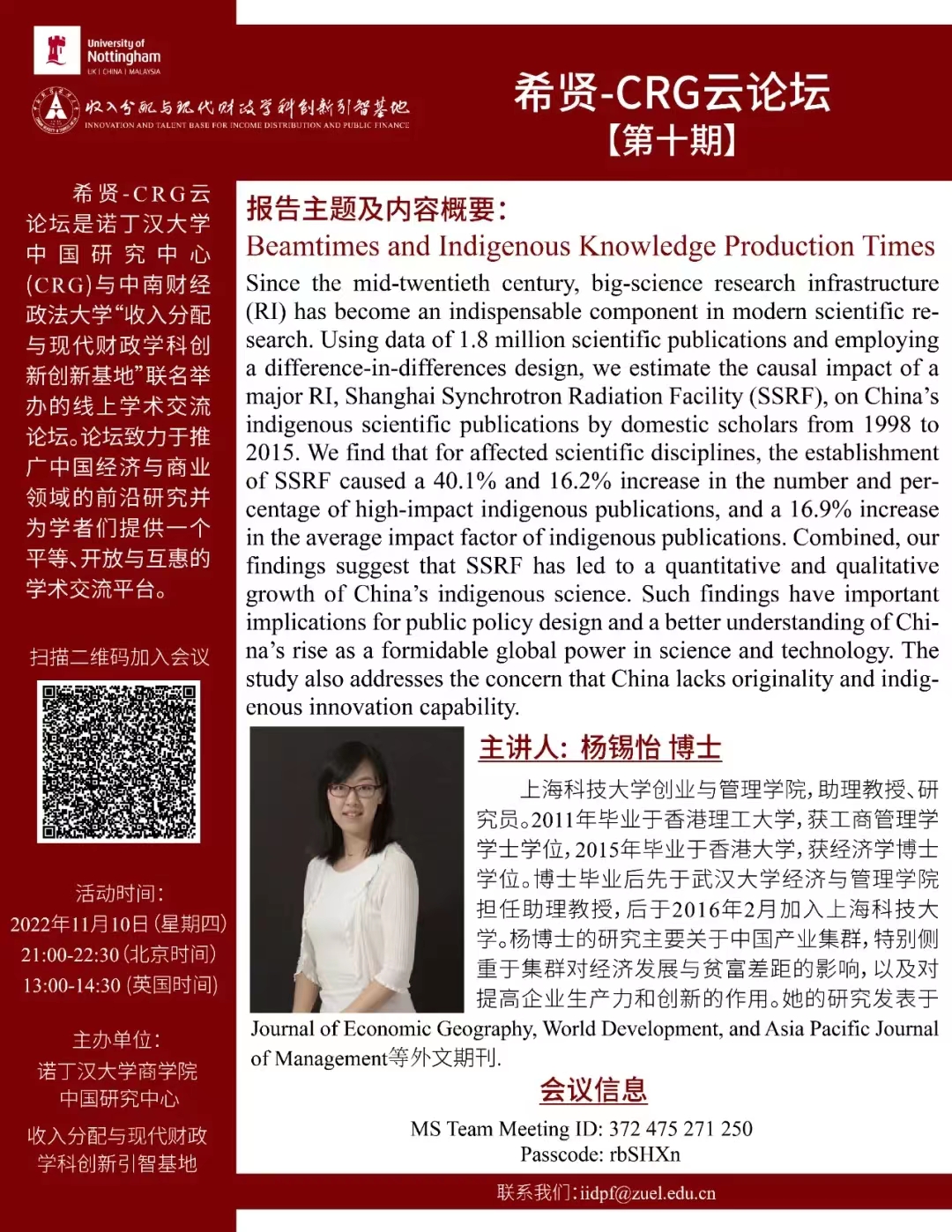
Topic:Beamtimes and Indigenous Knowledge Production Times
Abstract: Since the mid-twentieth century, big-science research infrastructure (RI) has become an indispensable component in modern scientific re search. Using data of 1.8 million scientific publications and employing a difference-in-differences design we estimate the causal impact of a major RIShanghai Synchrotron Radiation Facility(SSRF), on China’s indigenous scientific publications by domestic scholars from 1998 to2015.We find that for affected scientific disciplines the establishment of SSRF caused a 40.1% and 16.2% increase in the number and per centage of high-impact indigenous publications and a 16.9% increase in the average impact factor of indigenous publications. Combined our findings suggest that SSRF has led to a quantitative and qualitative growth of China’s indigenous science Such findings have important implications for public policy design and a better understanding of China’s rise as a formidable global power in science and technology. The study also addresses the concern that China lacks originality and indig enous innovation capability.
Keynote Speaker : Dr. Yang Xiyi
Dr. Yang is an assistant professor and researcher in the School of Entrepreneurship and Management at the University of Shanghai for Science and Technology. She graduated from the Hong Kong Polytechnic University with a B.S. in Business Administration in 2011 and from the University of Hong Kong with a Ph.D. in Economics in 2015. After her Ph.D., she first worked as an assistant professor in the School of Economics and Management at Wuhan University, and then joined the University of Shanghai for Science and Technology in February 2016. Dr. Yang's research focuses on industrial clusters in China, with particular emphasis on the impact of clusters on economic development and wealth disparity, and their role in increasing firm productivity and innovation. Her research has been published in Journal of Economic Geography, World Development and Asia Pacific Journal of Management, and other international language journals.
Time: Thursday, November 10, 2022 21:00-22:30 ( Beijing time ) 13:00-14:30 ( UK time )
